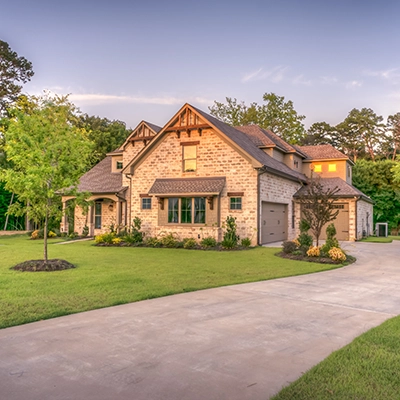Joint Property Ownership and Land Partitions in North Carolina
The Property Attorneys at High Point, NC based Cecil & Cecil, P.A. can help you with your joint property issues including Land Partitions by Sale Partitions in Kind.
Lawyers for Joint Property Ownership – Land Partition
When Joint property ownership goes awry there are cases when you a Land Partition Property Lawyer to help you divide your property. Typically joint property is achieved through inheritance or when friends or family jointly purchase a vacation home.
A Cecil & Cecil, P.A. lawyer, can help with property disputes in Central North Carolina taht can be resolved by selling the property and dividing the proceeds equally. If property disputes cannot be amicably achieved, partition proceedings come into play. Land Partitioning is the division of property, real or personal, by owners who jointly own the property. There are two kinds of partition proceedings, partition in kind and partition by sale.
Learn more about Joint Property Ownership and Land Partitions with the legal definitions below. Complete the quick form to the right and we will be in touch.

Our Property Attorneys can set up and execute Partitions in Kind
Partition in kind, also known as “Actual Partition” is the process of physically dividing the property amongst the owners of the property. Our Property Lawyers can resolve land disputes with land partitions that provide for the equitable partition of a property that needs to be sold.
To set up a consultation, complete our CLIENT REVIEW or CALL US for help with a Land Partition.
Land Partitions by Sale
Cecil & Cecil, P.A. attorneys can help clients obtain property appraisals and determine the value of the property to be partitioned in North Carolina. Our property lawyers in High Point will help settle property disputes an if need set up a Land Partition. If you jointly own property and are considering a Land Partition sale give us a call to discuss your options.

Legal Terms and Definitions and for Land Partitions in North Carolina
Land partition law in North Carolina encompasses a set of legal procedures and principles that govern the division of real property among co-owners. When multiple individuals hold an interest in a piece of land, disagreements may arise regarding the use, management, or disposition of the property.
North Carolina’s law provides mechanisms through which these disputes can be resolved, ensuring that each party receives their equitable share of the property or its value.
Contingent Future Interest: An interest in real property that will vest in the future upon the occurrence of a specified event.
Cotenancy: The holding of property by two or more individuals together, where each party has an undivided interest in the whole property.
Joint Tenancy with Right of Survivorship: A form of concurrent ownership where each tenant owns the property equally, and upon the death of one tenant, the surviving tenant(s) automatically inherit the deceased’s share.
Partition by Sale: A type of partition where the court orders the sale of the property and divides the proceeds among the co-owners, typically used when physical division is impractical.
Petition: A formal written request to a court requesting a specific legal action..
Reversion: An interest in real property that returns to the original owner or their heirs after the termination of a particular estate granted by the owner.
Tenancy in Common: A form of concurrent ownership where each tenant owns a specific fraction of the property and has the right to transfer their share independently.
Venue: The proper or most convenient location for trial of a case.
Understanding the legalities surrounding land partition in North Carolina is crucial for co-owners of real property, especially in cases where disputes arise regarding the division or sale of property. The legal terms provide a basic understanding of the key concepts involved in land partition actions.
These legal provisions ensure that all parties’ rights are considered and protected during the partition process, whether it involves dividing up the land amongst the co-owners or a sale and distribution of proceeds among the co-owners. For specific legal advice or assistance, consulting with a legal professional experienced in North Carolina real estate law is highly recommended.
The legal definitions provided on this page are for informational purposes only, and should not be construed as legal advice. Please consult with a qualified attorney for specific guidance and advice regarding your individual situation.
Contact Us For All Your Legal Needs
Monday – Friday: 8:30 am – 5:00 pm
Saturday – Sunday: Closed


